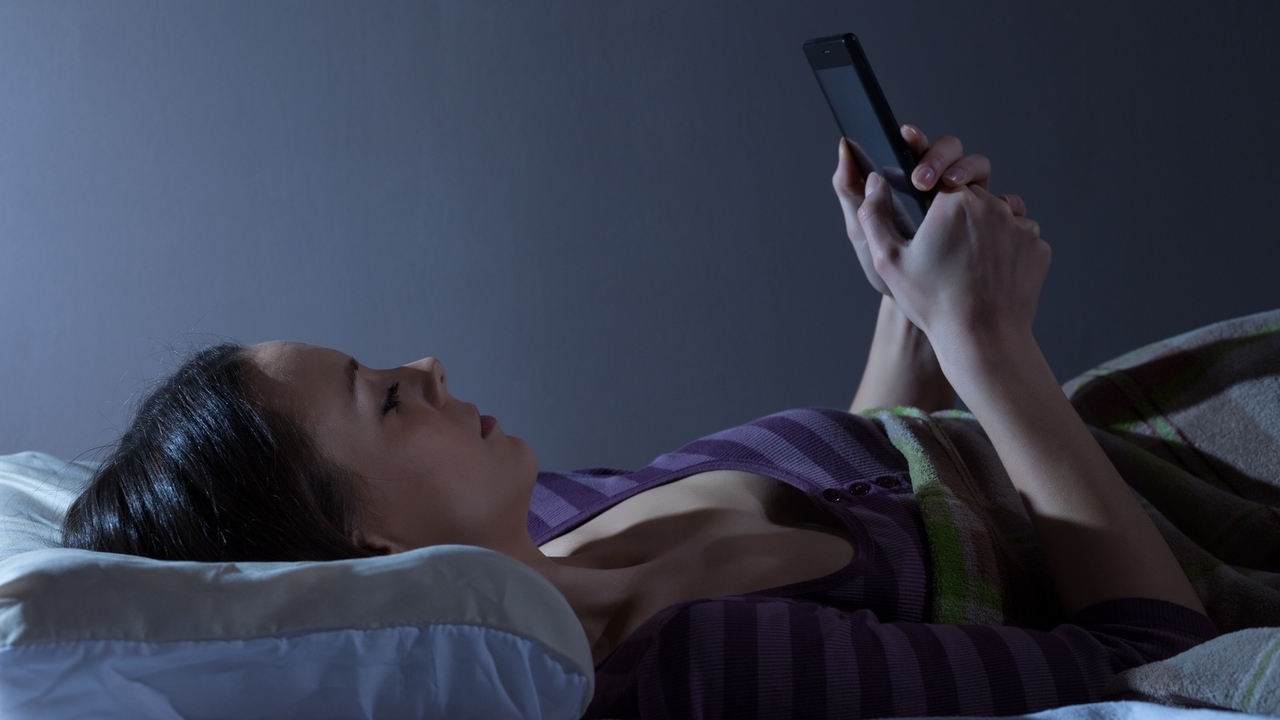 Hemera/Thinkstock
Hemera/Thinkstock
You check off the items on the list to help you get a night of restful sleep -- a good bedtime hour, comfortable night wear, soothing lighting, the right room temperature.
You have not had a stressful day and do not feel over-tired. You lie there and wait for sleep to take over, except that it eludes you half an hour after you have tucked in.
You are almost certain that what will follow is a night of tossing and turning.
Is there something amiss? There may well be.
We already know that certain foods or beverages like coffee, tea, and alcohol, or eating a large meal should be avoided before bedtime to gain a better sleep experience.
Researchers at School of Exercise and Sport Science, Faculty of Health Sciences, The University of Sydney found that eating certain high glycemic index carbohydrates helped shorten the time for the onset of sleep.
So what is the glycemic index (GI)?
GI is a numerical scale which tells us how quickly and to what degree a particular food can elevate our blood glucose/sugar level. The lower a food's GI or glycemic load, the less it affects blood sugar and insulin levels. (1)
In other words, the higher GI foods suggested by researchers to crash the onset time to sleep are the ones that will have a significant effect on your blood sugar and insulin levels at a relatively short period of time.
The study observed 12 healthy adult volunteers between the ages 18 and 35, to check the role of carbohydrate in the induction of sleep, and the effect of GI and mealtimes on sleep of the participants.
The volunteers were randomly divided into sub-groups and were administered high and low GI-based carbohydrate foods, four hours prior to bedtime to test for quality of sleep.
The participants derived most of their energy from carbohydrates and only 8 percent from proteins and 1.6 percent from fats.
They were offered meals of two types of rice four hours prior to sleep. On other occasions they would be given a high GI meal an hour before going to bed. The participants underwent a familiarization night, followed by three test nights in random order, one week apart. (2)
The study found that there was a significant reduction in the time of onset of sleep in the participants who were given a high GI meal an hour before bedtime. This was a greater reduction than that experienced by those who were given a low GI meal four hours prior to going to bed.
Similarly, a high GI meal four hours before bedtime had a crashed bed time compared to the same meal given only an hour before bed time.
The researchers concluded that though a high GI meal based on carbohydrates eaten four hours before bedtime helps a person sleep faster, more studies were required to be conducted to include the relevance of these findings to persons with sleep disturbances.
Some good examples of carbohydrates with a high glycemic index are corn, white rice, potatoes, baguette, muesli, pasta, barley, oatmeal and wheat. (3)
SOURCES:
1. Glycemic Index And Glycemic Load For 100+ Foods; Harvard Medical School - Harvard Health Publications; Web May 2012;
http://www.health.harvard.edu/newsweek/Glycemic_index_and_glycemic_load_for_100_foods.htm
2. High-glycemic-index carbohydrate meals shorten sleep onset 1,2,3; The American Journal Of Clinical Nutrition; Web May 2012;
http://www.ajcn.org/content/85/2/426.full
3. What is the Glycemic Index? World's Healthiest Foods; Web May 2012;
http://whfoods.org/genpage.php?tname=faq&dbid=32
INFORMATION IN THIS ARTICLE IS NOT MEDICAL ADVICE. ALL INFORMATION GIVEN IS TO BE CHECKED WITH YOUR DOCTOR BEFORE IMPLEMENTING OR TAKING THEM AS STANDARD OR VERIFIED.
Mamta Singh is a published author of the books Migraines for the Informed Woman – Tips From A Sufferer: ISBN: 978-81-291-1517-1 (Publisher: Rupa & Co. URL: http://www.amazon.com/Migraines-Informed-Woman-Tips-Sufferer/dp/8129115174/ref=sr_1_2?ie=UTF8&s=books&qid=1298990756&sr=1-2), Mentor Your Mind – Tested Mantras For The Busy Woman: ISBN: 978-81-207-5973-2 (Publisher: Sterling Publishers; URL: http://www.amazon.com/Mentor-Your-Mind-Tested-Mantras/dp/8120759737/ref=sr_1_1?ie=UTF8&qid=1316063179&sr=8-1) and the upcoming Women’s Complete Fitness Guide (Publisher: Hay House India).
She is also a seasoned business, creative and academic writer. She is a certified fitness instructor, personal trainer & sports nutritionist through IFA, Florida USA. Mamta is an NCFE-certified Holistic Health Therapist SAC Dip U.K. She is the lead writer and holds Expert Author status in many well-received health, fitness and nutrition sites.
She runs her own popular blogs on migraines in women and holistic health. Mamta holds a double Master's Degree in Commerce and Business. She is a registered practitioner with the UN recognised Art of Living Foundation. Please visit www.mamtasingh.com
Reviewed June 18, 2012
by Michele Blacksberg RN
Edited by Jody Smith






Add a Comment2 Comments
Dear Anonymous,
Thank you for taking the time to read this article at EmpowHer.
Best,
June 26, 2012 - 9:24amThis Comment
This is really interesting. I have been using guided meditation, Belleruth Naparstek’s tips, and yoga to get better sleep. I have also been curious about how diet changes would help, but have had no idea where to start. Thank you – I will try some of the tips here.
June 26, 2012 - 7:32amThis Comment